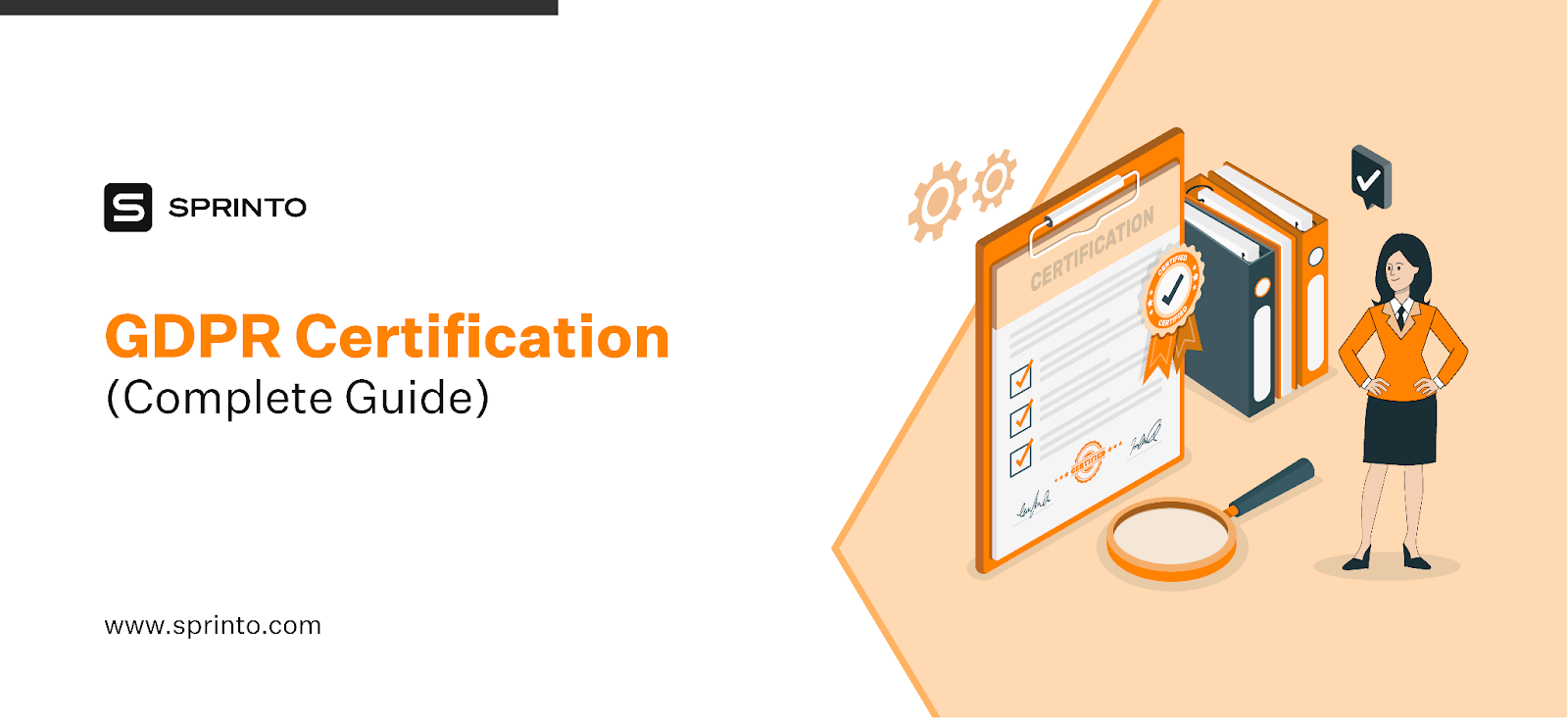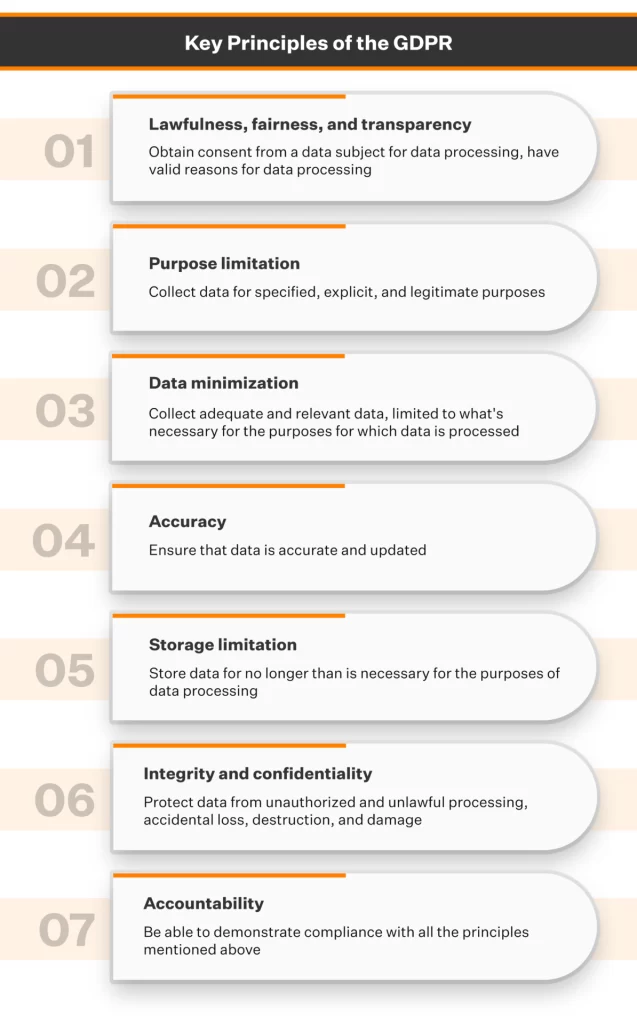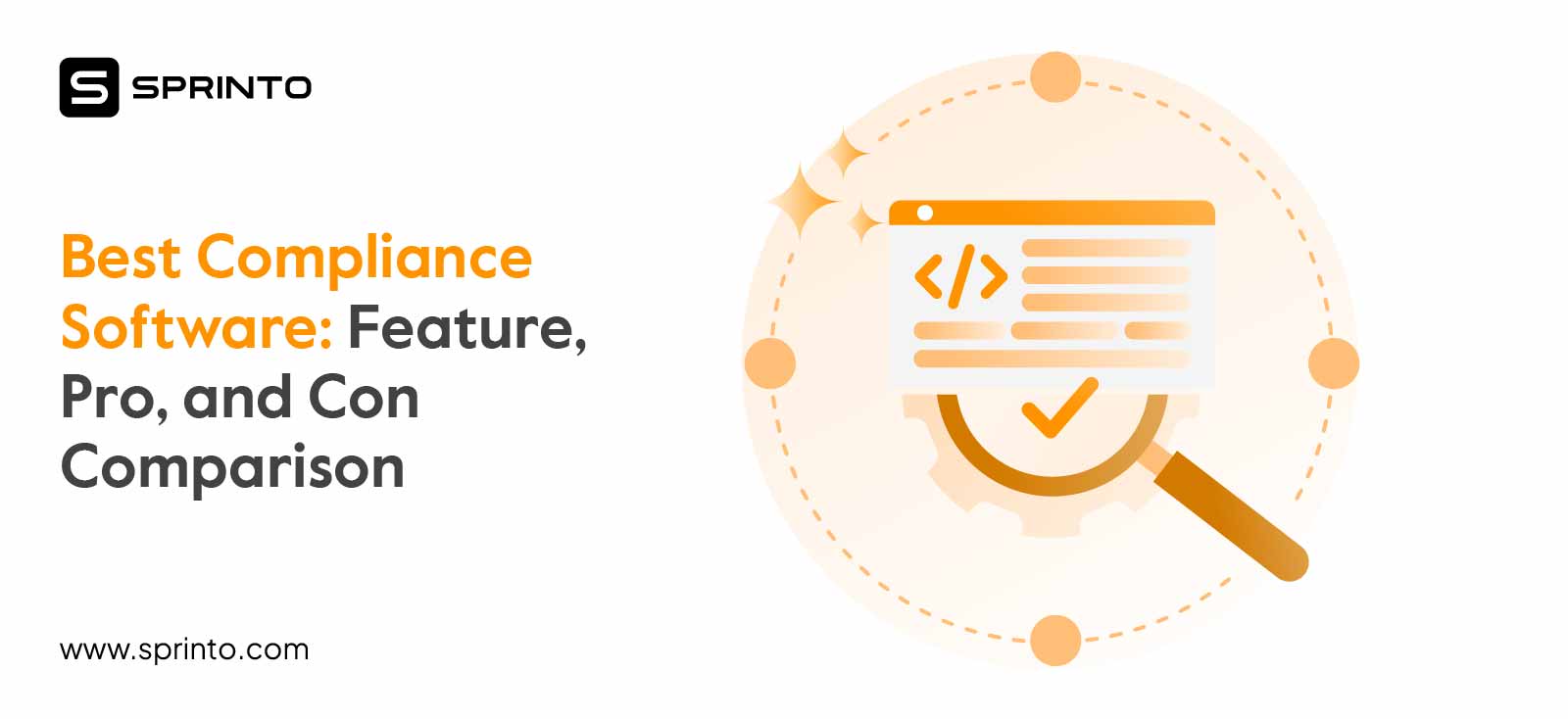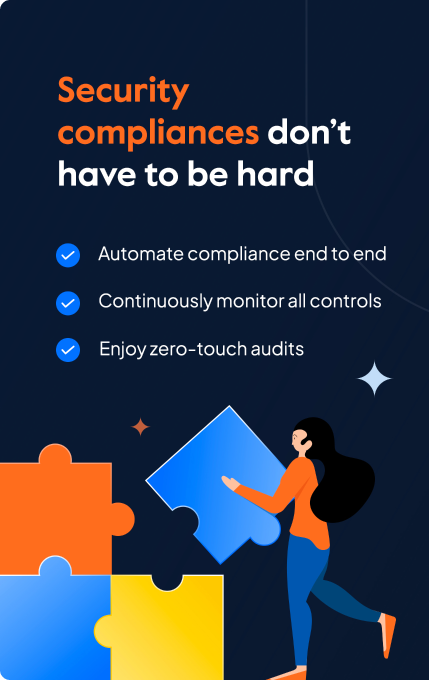GDPR Certification: The Ultimate Guide
Anthony
Feb 01, 2024

GDPR at a glance
- General Data Protection Regulation certification helps businesses prove that they are GDPR-compliant, meaning they protect European citizens from data loss due to cybercrime, terrorism, unethical business practices, and more
- The fines for noncompliance with GDPR can be up to 4% of the annual revenue or €20 million, whichever is higher
- GDPR is an essential compliance measure for doing business in the EU or dealing with data of citizens from the EU
What is GDPR?
The GDPR legislation is a landmark privacy legislation requiring companies that do business with EU citizens to comply. This means that most global businesses have felt its impact.
A survey by Thomson Reuters revealed that over 91 percent of companies are aware of the GDPR. Still, more than half of them struggled with compliance due to a lack of clarity on organizational measures or an inability to execute them.
In this blog, we look to help you understand all about GDPR compliance from scratch and how you can achieve compliance with these data protection laws.
The history of GDPR: How did the landmark legislation change the privacy landscape?
The GDPR legislation went into effect on May 25, 2018, before which there was a 2 year grace period where companies had a chance to change policies to comply with the legislation. However, despite this period, companies were still struggling to meet the standards as there was a lot of ambiguity.
Once the grace period was over, it opened up a Pandora’s box of compliance concerns for businesses, with the fines and stakes at an all-time high and no clear path to achieving it.
In fact, a survey by Reuters revealed that over 79% of businesses failed to meet regulatory requirements after GDPR implementation compared to 72% before. This was especially true for the US, where 64% of businesses reported noncompliance.

Meet our compliance experts
Join our Compliance Q&A
Fastrack your audit with on demand guidance.
What is GDPR Certification?
GDPR certification proves to EU regulatory bodies such as EDPB (European Data Protection Board) and customers that businesses are GDPR compliant and adhere to required data protection principles.
A GDPR compliance certification can be obtained from relevant accreditation bodies such as EuroPrise, TRUSTe, ISO 27001 ISMS, and Cyber Essentials and will eventually be offered by EDPB.
Understand the effort involved in a GDPR certification for your business, and calculate the man-hours required across teams using our compliance effort calculator.
Save 80% of man hours spent on GDPR
Key principles of GDPR Certification: Intent behind the framework
The key principles of GDPR are:
- Lawfulness, fairness, transparency
- Purpose limitation
- Data minimization
- Accuracy
- Storage limitation
- Integrity and confidentiality
- Accountability

Importance of GDPR: Safeguard people’s privacy against big business
- GDPR compliance aims to protect the data of EU citizens and provide data protection along with enforcing the right to privacy.
- It gives teeth to EDPB to enforce huge fines on businesses that do not adhere to these regulations in their data processing operations and management systems.
- It prevents data misuse and opacity that has plagued the tech sector, especially monopolies, which have a lot of lobbying power to flout legal obligations.
- Achieving GDPR compliance also helps companies protect against data breaches or litigation that can cost the company to the tune of millions of Euros.
A few instances where GDPR has been invoked to protect the rights of EU citizens include
- Amazon was fined €746 million by Luxembourg’s data protection body for its opaque data collection practices.
- Whatsapp has been fined 225 million by the Ireland Data Protection Body for data breach and transparency.
Check out this video on GDPR fines and their impact on businesses to understand the ramifications of noncompliance with certification criteria.
How to become GDPR compliant (the right way) ?
From raising awareness and getting buy-in on GDPR to defining an actual process, figuring out how to get started can be overwhelming. That’s why it’s important to have a checklist in mind when starting this journey.
While we will cover most of the steps below, to get a more detailed understanding of what it takes to implement GDPR compliance, you can download our GDPR audit checklist below.
Download your GDPR Audit Checklist
Step 1: GDPR Certification Readiness and Planning + Groundwork
Create a plan of action by involving stakeholders and sharing the level of ownership that each person will have to take up. Ensure that you have their buy-in on the implementation timeline and the commitment from their side to meet the legal requirements.
Ideally, you should also involve them or give them an idea of how you will help make their life easier by using a consultant or compliance automation platform/GRC to roll out the security compliance program. Once you have everyone’s buy-in, start by presenting a gap analysis of your compliance posture along with expectations from each leader.
Step 2: Understand how data flows in your business
As the essence of GDPR is around data privacy, it is essential to understand how data flows before undertaking any audit around it. Ensure you have a clear data flow path charted out that details all the data collected and processed, the basis for each processing, and more.
Identify all the internal discrepancies and gaps that you feel exist and also review from a user point of view if your communication around data collection is clear and transparent from a plain language perspective. Read the data subject rights blog to learn more about the legalities around collecting data and Article 30 to know more about ROPA (Report of Processing Activity) requirements.
Step 3: Develop policies and training based on your data flow
Once you have a clear idea of your data flow, draft internal policies that help you secure your data and showcase the right intent with the data. These policies include a Data Retention Policy, Consent Policy, Data Transfer Policy, and more. Let’s take a closer look at these policies below:
- Cookie consent policy – You need to obtain cookie consent from your website visitors in a clear and transparent way and explain in plain language how data will be used, the duration of storage, along with option to opt out of such data collection.
- Data protection impact assessment (DPIA) policy – Any project that involves data processing must only be undertaken after a data protection impact assessment which conducts an analysis of how data collection impacts the privacy of customers.
- Data transfer policy – Any transfer of customer data that involves EU citizens, either within the EU or externally, should be subject to GDPR norms. Ensure that at no step of the data transfer or storage process does the data breach these norms.
Data processing can get even more complicated if there are external vendors involved in the equation, if you employ a cloud vendor for data storage, ensure that you get them to sign a Data processing agreement to understand what such an agreement should look like, you can check out our Data processing agreement template below!
Download your GDPR Data Processing Template
Step 4: Hire or assign a DPO and give them ownership
You should also hire or assign a Data Protection Officer from your Compliance Team to make them a POC around all things GDPR audit and compliance. Their major responsibilities should cover monitoring compliance to GDPR, staying updated on EDPB directives around compliance, assigning responsibilities and following up on status, and communicating with EU authorities as needed in case of non-compliance.
Step 5: Automate the audit process with compliance automation
Now that you have an understanding of the steps involved in GDPR certification, how do you ensure that these steps don’t take you months to implement? Well, choosing a consultant or trying to DIY a certification can be really a futile effort, either leaving you too dependent on external guidance or really without any help navigating.
The best way of going about it is choosing a Compliance Automation platform or GRC system like Sprinto that helps you get compliant methodically and ensures all the work you do is reusable for future certifications. Without Excel sheets and ad hoc measures, Sprinto can help you get GDPR compliant without the hassle.
To learn more about how Sprinto can help, watch the video below!
Get GDPR ready in weeks
GDPR certification bodies: Who can grant you the certification?
The European Privacy Seal (EuroPriSe):
EuroPriSe has over 15 years of experience in the data certification space. It is a certification for IT products and IT-based services funded by the EU Commission. It aims to give a seal of approval to companies dealing with EU citizens’ data.
TRUSTe:
The TRUSTe certification is a seal of approval meant for US companies that do business in the European region or deal with EU citizen data. It combines regulatory standards such as ISO 27001, GDPR and more to help companies be compliant with US and European regulations together.
Get GDPR certification (the smarter, faster way)
GDPR compliance is a worthwhile investment for any cloud-hosted company—and not a burden—because it increases customer engagement and builds customer confidence. However, unless you use the smart tools that are available to you, it can be a cumbersome exercise. Here’s how to get compliant the easy way (with Sprinto)
- Sign up for Sprinto and add GDPR and other frameworks you are interested in.
- Get detailed onboarding and support on how GDPR is applicable to your business to understand logic behind all the controls.
- Connect Sprinto to your tech stack via integrations and let it run a check on your existing setup.
- Sprinto will reveal what are the gaps with respect to the controls mapped to the criterion of GDPR principles.
- Add relevant owners as stakeholders and work towards the control gaps; the dashboard will reveal your progress.
- Once the dashboard reflects your compliance, it is sent to a GDPR-approved certified body to get you certified.
- Get compliant and keep monitoring your compliance status on your dashboard (it’s that easy)
Get started on your journey!
Get GDPR compliant hassle-free
FAQs
What is GDPR certification?
GDPR certification enables individuals or entities to get certified by approved accreditation bodies like EuroPriSe or TRUSTe, which will demonstrate to customers and to the EU that they are GDPR-compliant.
How to get GDPR compliance certification?
Obtaining GDPR compliance certification involves the following steps:
- Prepare for GDPR certification
- Define personal data policy
- Create a list of processing activities
- Define a process to manage data subject rights
- Run a data protection impact assessment (DIPA)
- Make personal data transfers safe
- Amend third-party contracts
- Secure personal and sensitive data
- Define how data breaches will be handled
How can we become a GDPR certification body?
GDPR certification bodies need to fulfill the following criteria:
- They demonstrate to the relevant supervisory authority their independence and expertise in the subject matter of the certification.
- They have established procedures for the issue, withdrawal, and periodic review of data protection certifications, marks, or seals.
- They have established structures and procedures for handling complaints regarding infringement of certification or the way in which the certification is being implemented. They should also make these procedures transparent to data subjects and the general public.
- They should be able to demonstrate to the relevant supervisory authority that there is no conflict of interest with respect to their tasks and duties
Anthony
Anthony is Sprinto’s Director of Content and marketing virtuoso, skillfully marrying agency experience and B2B SaaS acumen to craft triumphant growth strategies through Content, SEO, Branding, and Social Media. With a history of scripting organic success, he has ranked 100k+ keywords and generated 30 mn+ content-attributed pipeline for B2B brands.
Grow fearless, evolve into a top 1% CISO
Strategy, tools, and tactics to help you become a better security leader
Found this interesting?
Share it with your friends
Get a wingman for
your next audit.
Schedule a personalized demo and scale business

Sprinto: Your growth superpower
Use Sprinto to centralize security compliance management – so nothing
gets in the way of your moving up and winning big.



